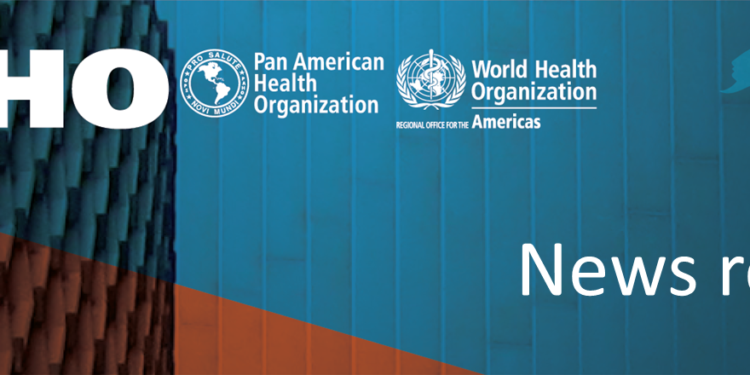Washington D.C., 13 July 2022 (PAHO) – As Omicron sub-lineages BA.4 and BA.5 drive a new wave of COVID-19 infections across the Americas, and cases of monkeypox continue to rise, the Pan American Health Organization (PAHO) Director Carissa F. Etienne has called on countries to work together to meet the growing demand for vaccines, medicines, and other health equipment in the region.
The emergence of Omicron sublineages is “yet another reminder that the virus keeps evolving every time it is transmitted, and that we must remain vigilant,” the Director said during a media briefing today.
“Manufacturing capacity will continue to be sorely needed in our Region to help deal with COVID-19 and other pathogens. There are likely to be outbreaks of other diseases that will require us to rapidly develop and deploy new vaccines, diagnostics, and drugs to fight them,” she added.
Dr. Etienne highlighted that at the start of the COVID-19 pandemic, the region struggled to meet the growing demand for drugs, diagnostics, and personal protective equipment, with many countries relying on imports to protect their populations. When COVID-19 vaccines were first rolled out COVID-19 vaccines, countries also scrambled “to secure supplies.”
“We must be better prepared for the future,” the Director said, announcing a three-step plan to work with countries and international donors to bolster regional capacity to manufacture vaccines and medical tools.
The first phase will focus on efforts to strengthen research and development in Latin America and the Caribbean, particularly in the area of mRNA vaccine development.
The Regional Platform to Advance Manufacturing of COVID-19 Vaccines and other Health Technologies, launched last year, aims to train and support local companies in utilizing mRNA vaccine technology. So far, Sinergium Biotech from Argentina and the Institute of Immunobiology Bio-Manguinhos from Brazil are participating in this initiative.
The second phase focuses on developing a strong regional regulatory system to ensure that new medical tools are safe and effective.
For the third phase, PAHO is working with regional and international partners to create a shared roadmap to improve the production of health technology in the Americas, including partnerships with the European Union to strengthen the region’s capacity for medical product development.
“All these efforts combined have the potential to transform how our region develops and manufactures health products, especially highly sophisticated tools such as vaccines,” the Director said.
However, Dr. Etienne also warned that improving manufacturing capacity alone “is not sufficient to guarantee access,” and that PAHO’s pooled procurement mechanisms such as the Revolving Fund will be key to ensuring that vaccines and other health technologies are available to everyone in the region.
The Revolving Fund shows the “impact we can have when we leverage our history of solidarity and collaboration,” the Director said. With this same spirit, we can build up our region’s medical production capacity to “save and protect even more lives.”
Turning to the COVID-19 situation in the region, countries reported approximately 1.6 million cases and 4800 deaths last week – a 0.9% and 3.5% decrease respectively.
Central America reported an increase in cases – by 54.9%, and South America reported a 2% increase.
In the Caribbean, cases fell by 5.2%, and in North America, cases fell by 4.5%.









